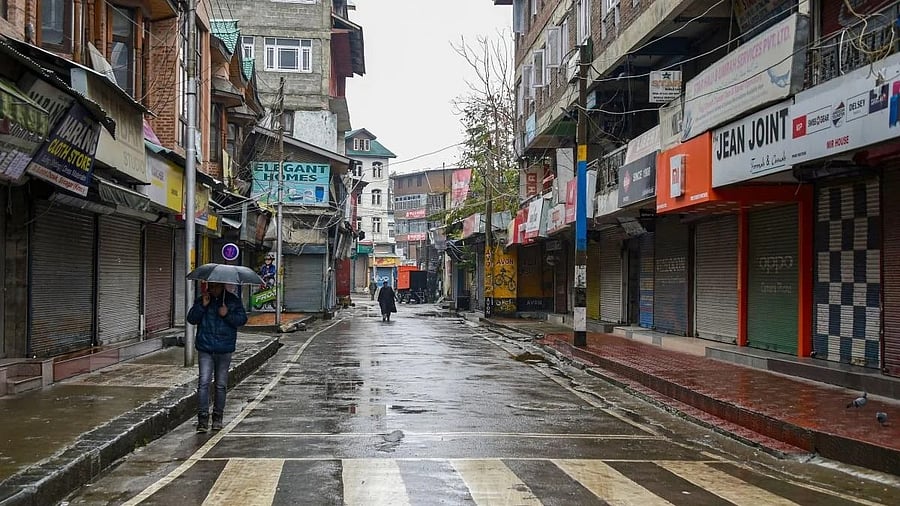
The photo shows pedestrians on the streets of Jammu and Kashmir.
Credit: PTI File Photo
Srinagar: The tricolour flutters everywhere in Srinagar these days — from marathon start-lines to college amphitheatres and manicured parks. Each week brings a new event celebrating “national integration,” “Nasha Mukt Bharat,” or “Viksit Bharat Sankalp.”
But behind the patriotic banners and selfies lies a quiet industry — one that’s minting money from the politics of spectacle.
Official sources said in the past few years, several NGOs and private firms have received government contracts worth crores to organise these “outreach” events across Kashmir. Many of them were incorporated after 2019, when the Union government revoked Jammu and Kashmir’s special status and launched an aggressive “normalcy” campaign.
These entities are routinely assigned marathons, music shows, Tiranga rallies and cultural festivals by departments such as Information, Tourism, Smart City, and Rural Development — often through limited tenders or direct work orders, they said.
The stated aim is “to promote national unity and awareness,” but officials familiar with the process admit that transparency is minimal.
“A small group of organisers get repeated assignments,” said a senior government officer who requested anonymity. “Most contracts are cleared in haste under outreach or publicity heads, where financial scrutiny is weaker. These are easy projects — high visibility, low accountability.”
In one district, a single NGO was found to have conducted over a dozen “integration” events — from road shows to bike rallies — earning more than Rs 1 crore through combined departmental payments. Another Srinagar-based event company has become a preferred vendor for Tiranga-themed campaigns.
Local event managers say the ecosystem has become a closed circle. “The themes keep shifting — Beti Bachao, Drug-Free Kashmir, or Viksit Bharat — but the beneficiaries are the same,” said a young coordinator who has worked on several such contracts. “If you’re not politically connected or endorsed by the police, you won’t get a call.”
While officials insist the campaigns are about “positive engagement,” economists see a deeper pattern. “Public spending has turned performative,” said a political analyst. “It’s about projecting patriotism as proof of normalcy, even when governance outcomes remain unchanged.”
Ordinary citizens echo that sentiment. “These events light up the city for a day or two,” said a shopkeeper in Lal Chowk. “Then the banners come down and life goes back to power cuts, joblessness and potholes.”
Meanwhile, the visible beneficiaries — tent contractors, local PR handlers, printing presses and a handful of NGOs — continue to thrive. “Patriotism has become a business model,” remarked a Srinagar-based journalist who tracks government spending. “There’s a rate card for everything — from Tiranga distribution to drone coverage.”
As the tricolour glows brighter on Kashmir’s skyline, critics say what’s being built is less about unity and more about utility — a carefully curated market where loyalty pays, literally.